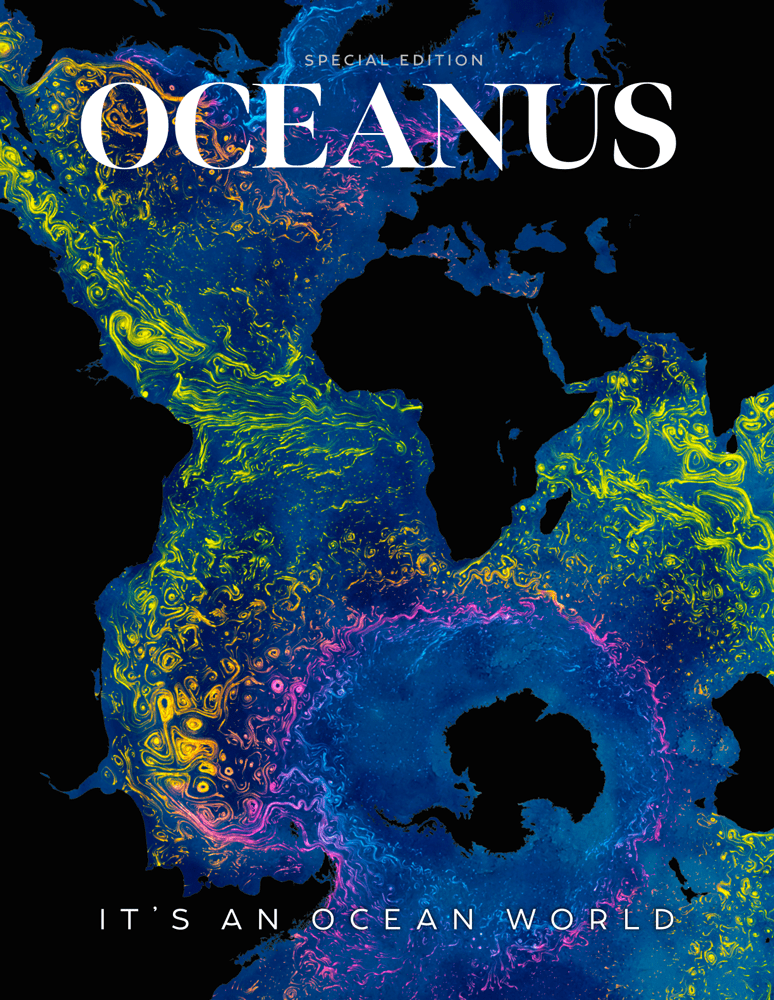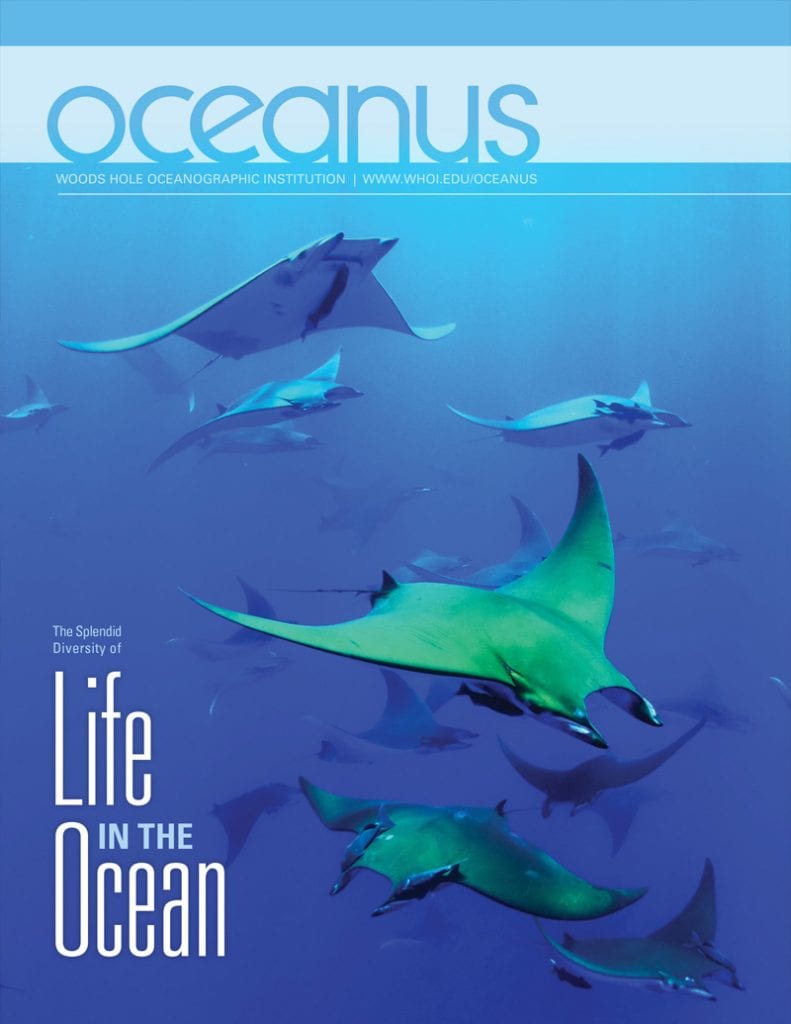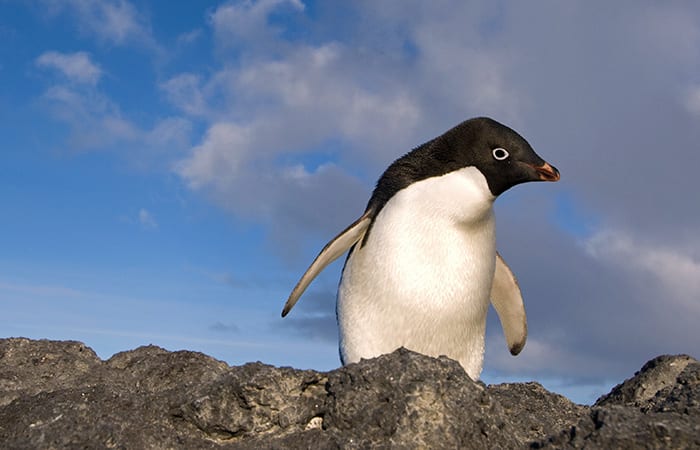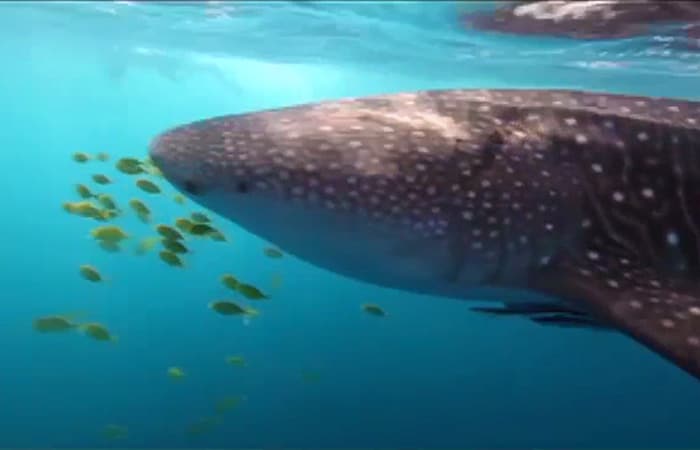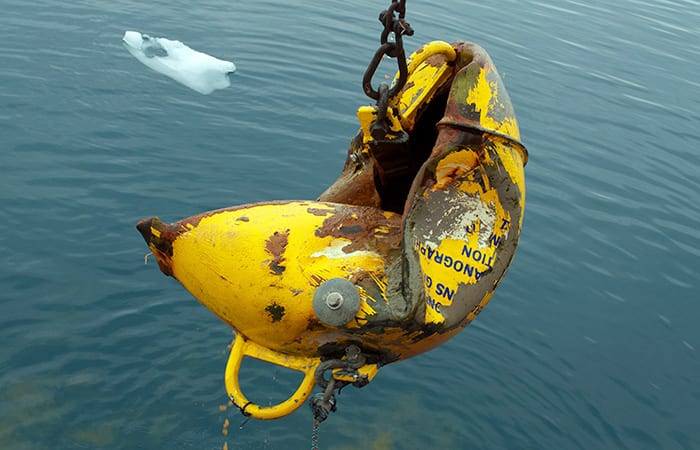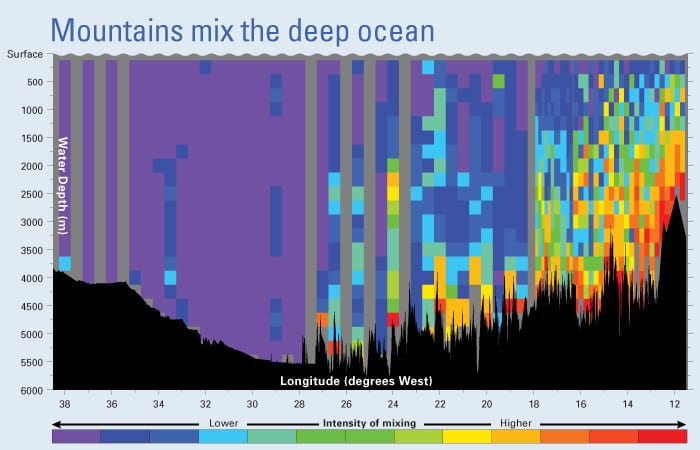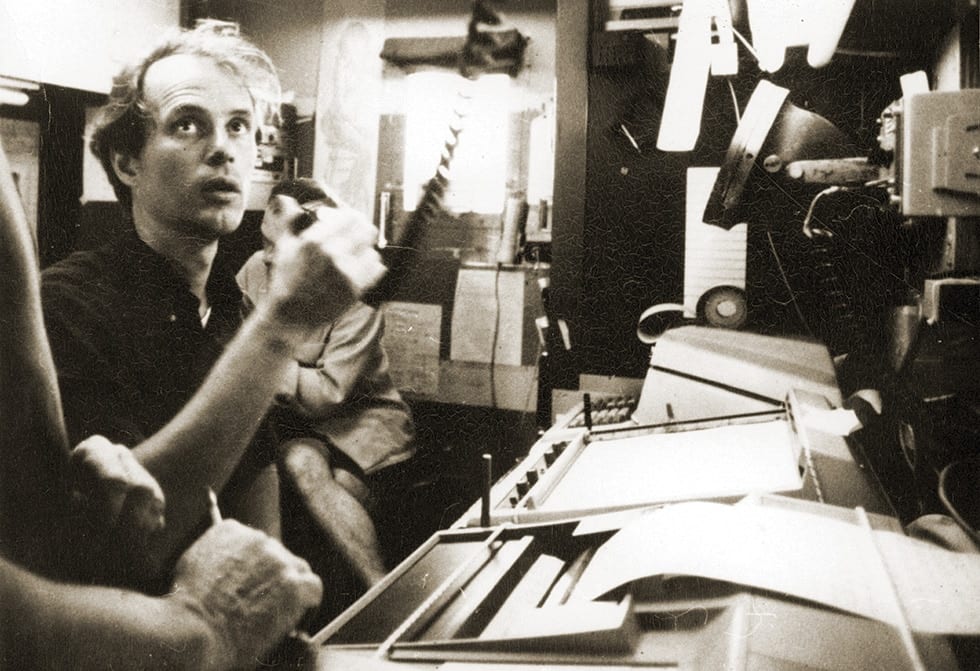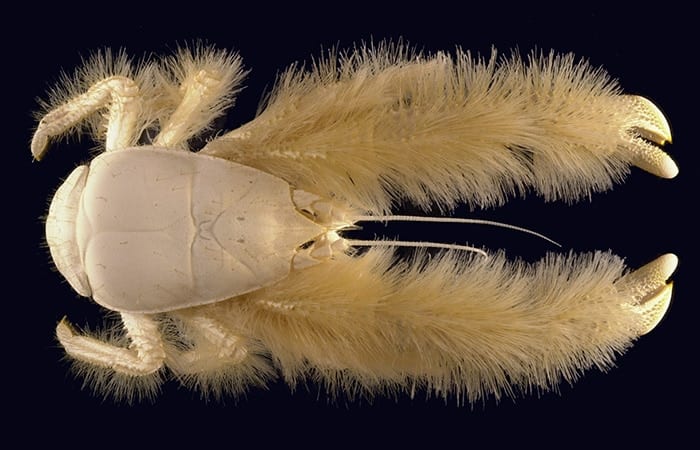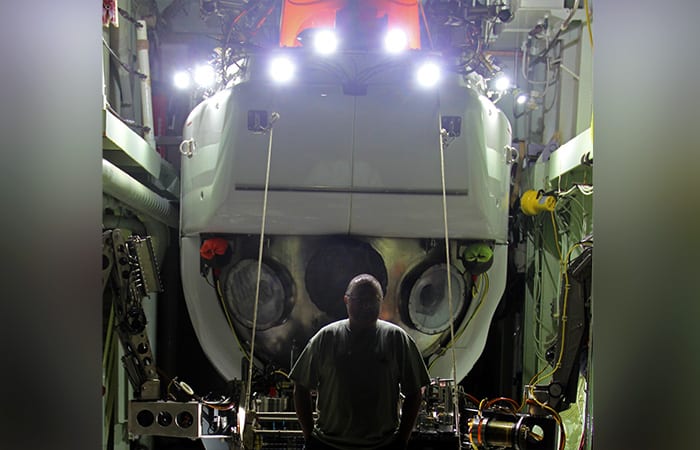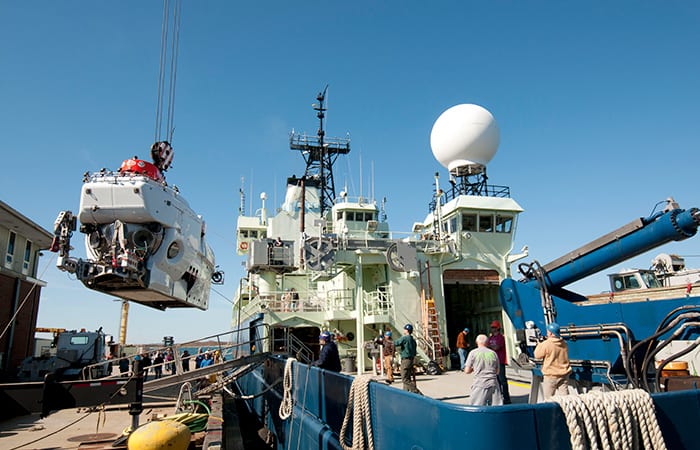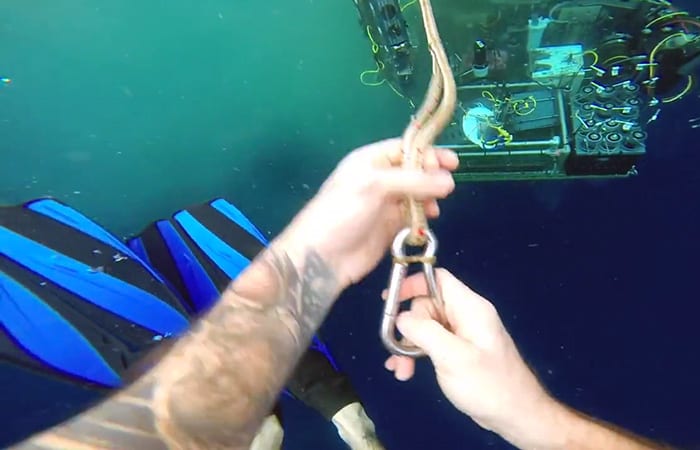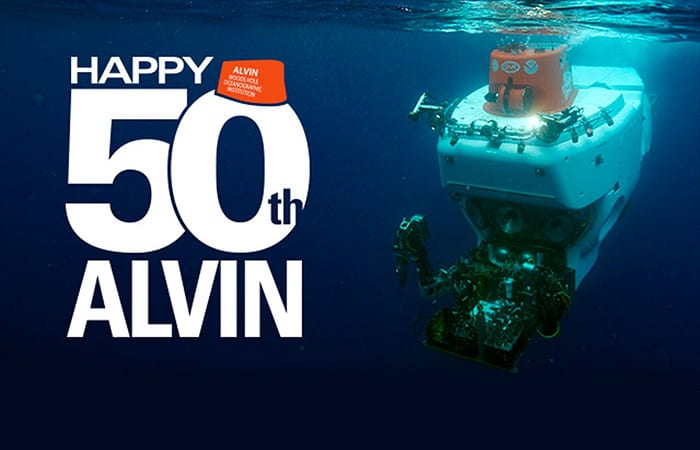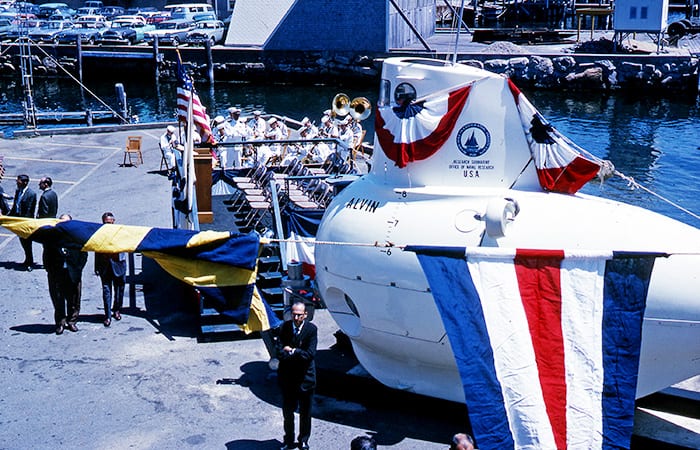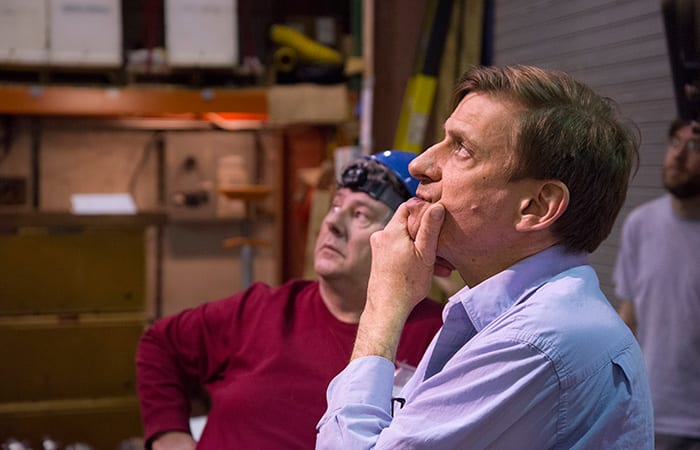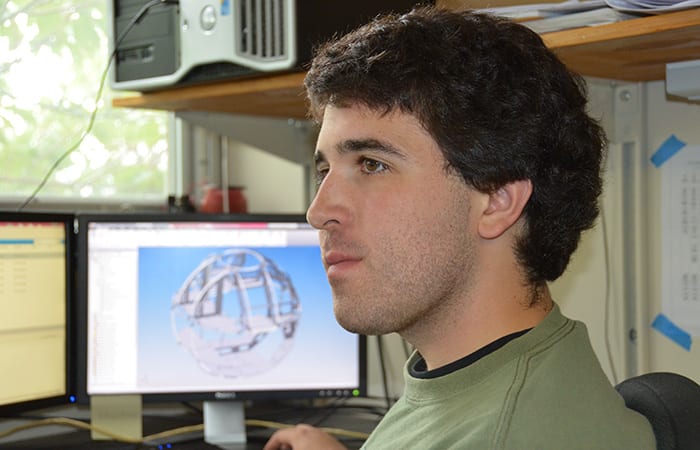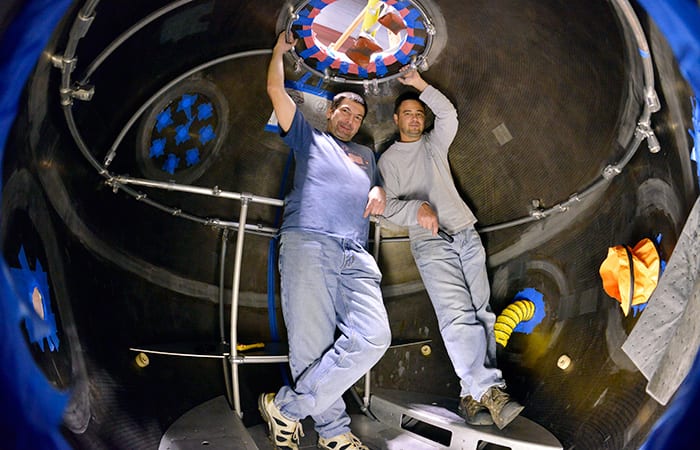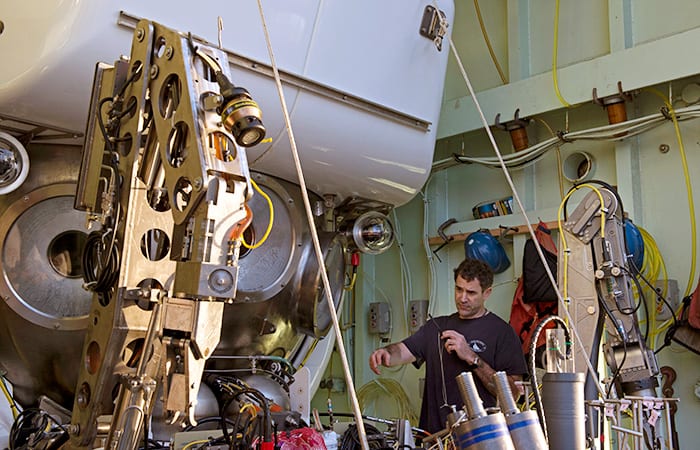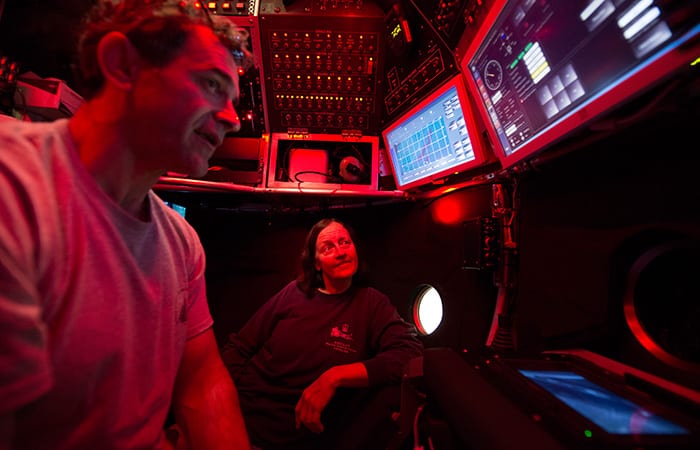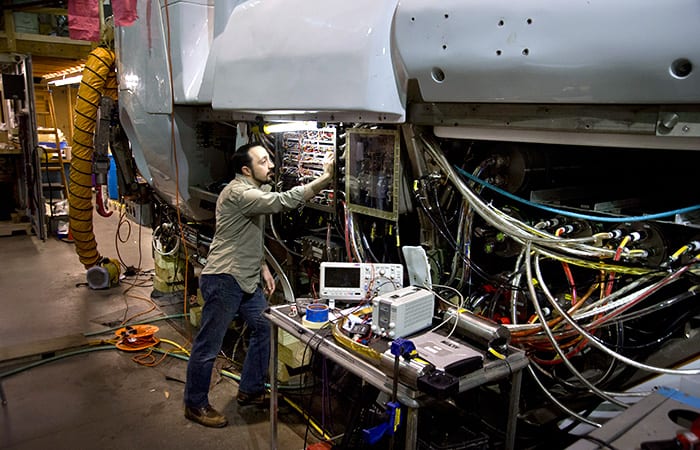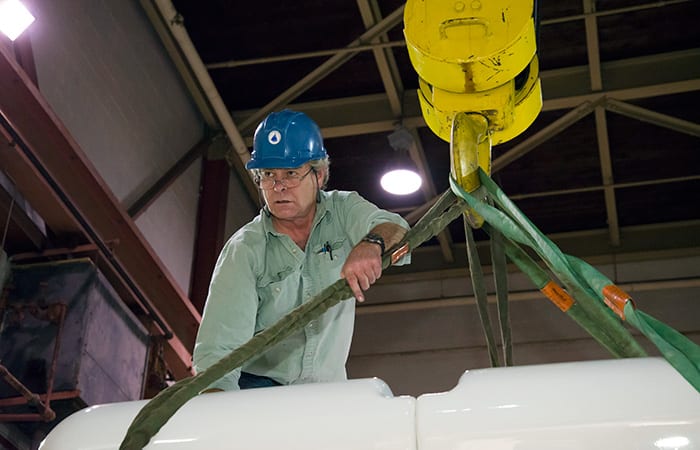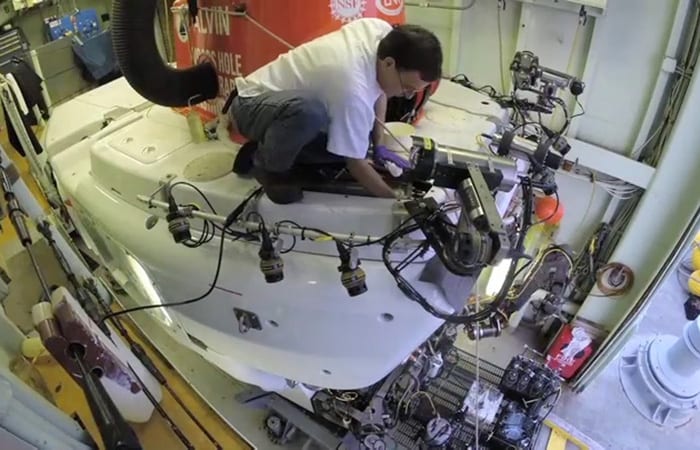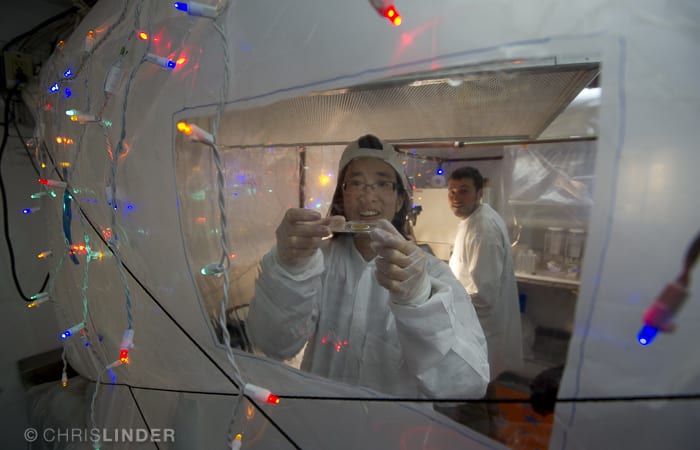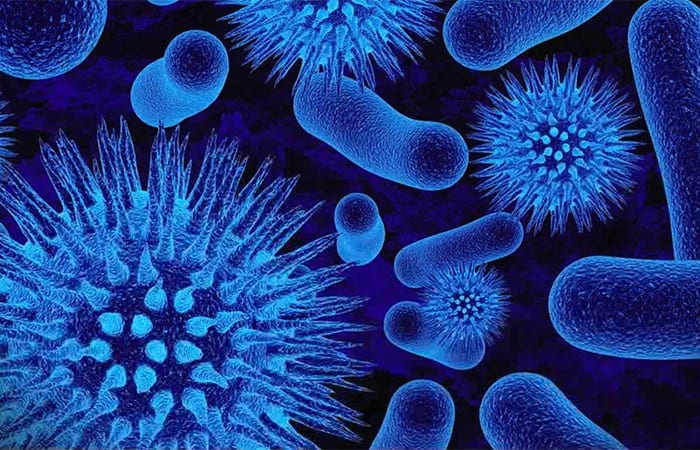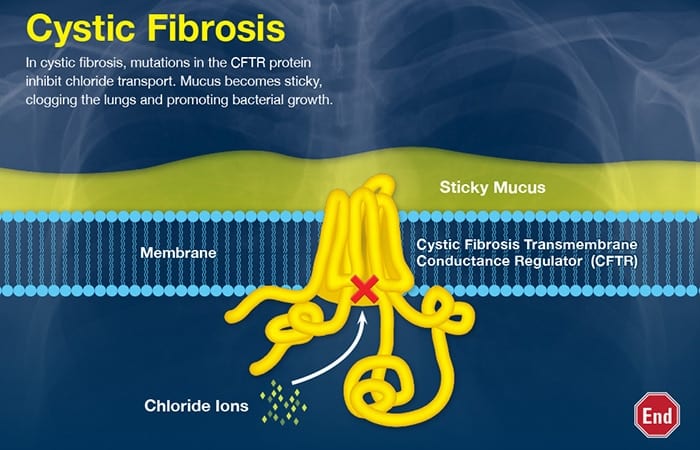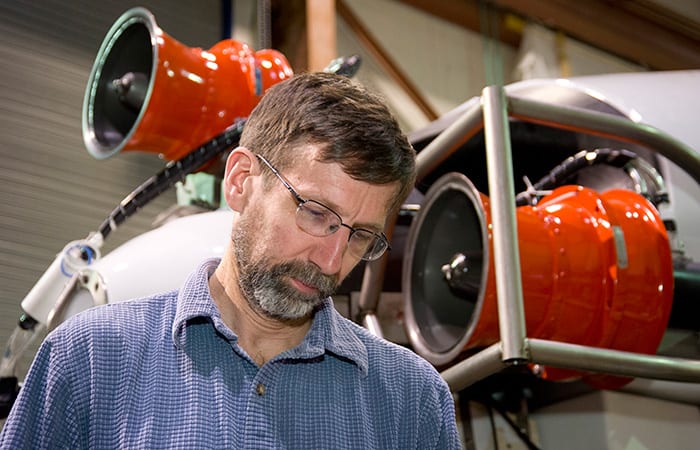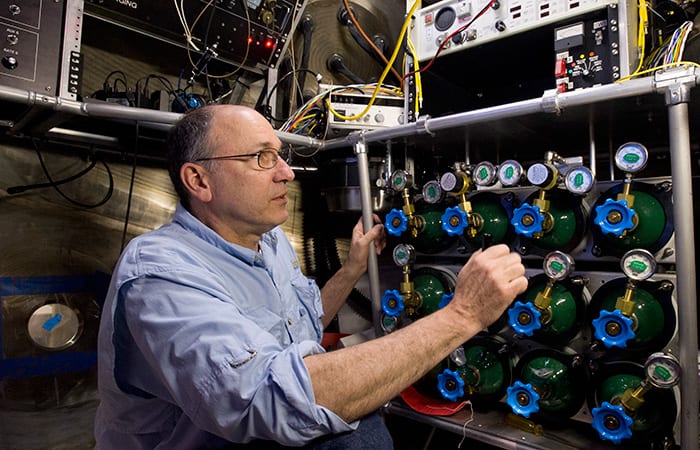Oceanus Online Archive
From Penguins to Polar Bears
Polar ecosystems are especially vulnerable to climate change. They are also notably hard to study and to manage. Scientists came to WHOI recently for a Morss Colloquium to address the issues.
Read MoreA Haven for Whale Sharks
Scientists discovered an aggregation of juvenile whale sharks in the Red Sea and used satellite tags to track the elusive migrations of this endangered species.
Read MoreA Mooring in Iceberg Alley
WHOI scientists knowingly put a mooring in a fjord filled with icebergs near the terminus of a Greeland glacier. But it was their only way to learn if changing ocean conditions might be affecting how fast the glacier flowed into the ocean.
Read MoreA Drop in the Ocean
How can you follow a wisp of water within the turbulent immensity of the ocean? Jim Ledwell figured out a way. He developed a method to inject a harmless chemical…
Read MoreAlvin‘s Fun Facts
Here are answers to some of the questions people have asked about the deep-sea research submersible in its first half-century.
Read MoreAlvin‘s Animals
From orange octopi and furry yeti crabs to the largest known anemone, pilots and scientists diving in the Alvin submersible continue to find amazing marine creatures.
Read MoreRebuilding Alvin: Chris German
From the beginning of 2011 to May 2013, Alvin, the U.S. science community’s only human-occupied submersible dedicated to deep-sea research, underwent a major overhaul and upgrade to greatly enhance its capabilities.…
Read MoreAt 50, Alvin Gets an Extreme Makeover
The deep-sea research submersible Alvin returned to service in March 2014 after undergoing an historic overhaul that significantly enhanced its capabilities.
Read MoreBringing Alvin Back on Board
Crew members of the research vessel Atlantis play crucial roles in recovering the submersible after its day on the bottom of the ocean.
Read MoreHappy 50th Birthday, Alvin
Five years before we landed a man on the moon, a stubby submersible was built to take people to the bottom of the ocean. Alvin was commissioned on June 5, 1964.
Read MoreTrailblazer in the Ocean
On June 5, 1964, a stubby submersible with a not-so-bold name was commissioned on the dock of Woods Hole Oceanographic Institution, marking the beginning of a new era of deep-sea exploration
Read MoreRebuilding Alvin: Don Peters
More than 100 people at WHOI played roles in redesigning and reconstructing the new Alvin. Don Peters, senior engineer, headed the team that reconfigured the sub to accommodate a larger sphere and added weight.
Read MoreRebuilding Alvin: Logan Driscoll
The new Alvin has a new, slightly larger personnel sphere. Still, getting all the necessary equipment to fit inside the sphere took a Herculean effort.
Read MoreRebuilding Alvin: Durante & Skowronski
The new Alvin has a new, slightly larger personnel sphere. Still, getting all the necessary equipment to fit inside the sphere took a Herculean effort.
Read MoreRebuilding Alvin: Bruce Strickrott
Now that the newly upgraded Alvin has resumed operations, a pilot and scientist describe how some of the new features of the submersible are changing the way they are using the vehicle.
Read MoreRebuilding Alvin: Humphris & Strickrott
Now that the newly upgraded Alvin has resumed operations, a pilot and scientist describe how some of the new features of the submersible are changing the way they are using the vehicle.
Read MoreRebuilding Alvin: Anthony Tarantino
Anthony Tarantino, assistant project manager for the upgrade, explains the electrical systems in the new Alvin.
Read MoreRebuilding Alvin: Rod Catanach
Engineer Rod Catanach describes the fabrication, testing, and installation of the syntactic foam that provides buoyancy for Alvin.
Read MoreReady, Set, Dive
Before scientists go to work in the morning at the bottom of the ocean in the submersible Alvin, a team of engineers, pilots, and ship’s crew performs a carefully orchestrated choreography.
Read MoreUncovering the Ocean’s Biological Pump
Dan Ohnemus clearly remembers the highlight of his fourth-grade class in Bourne, Mass. He and his classmates made a satellite call to scientists at Woods Hole Oceanographic Institution (WHOI) who…
Read MoreDrug Discovery in the Ocean
WHOI scientists are investigating a wide range of unexplored microbes that produce chemicals with potential therapeutic value.
Read MoreRebuilding Alvin: Jonathan Howland
The 25th installment in our series on the people at Woods Hole Oceanographic Institution who helped design and build the new and improved version of the submersible Alvin.
Read MoreRebuilding Alvin: Phil Forte
A new installment in our series on the team of people at Woods Hole Oceanographic Institution who helped design and build the new and improved version of the submersible Alvin.
Read More